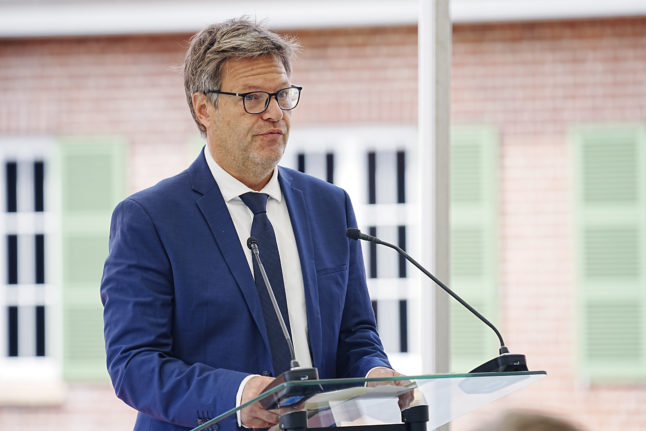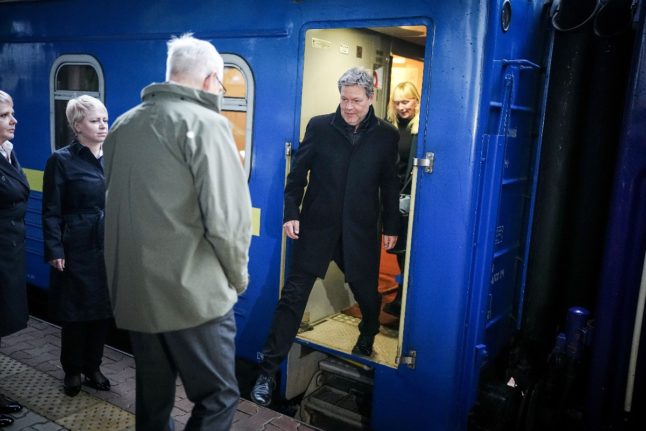Economics Minister Robert Habeck (Greens) has warned that the government may have to step in to regulate gas usage if there are shortages this winter.
Over the colder months there is a “medium-term” threat of a scenario in which “reductions (in gas usage) will actually have to be imposed by law,” Habeck said before a meeting with other EU energy ministers in Luxembourg on Monday.
Such a reduction would lead to “a severe economic crisis” in Europe and Germany, he said.
The minister did not say who exactly could be affected by reductions.
READ ALSO: German environmentalists call for caps on energy usage
He said this would depend on the specific situation and how cold the winter would be, where there were “regional supply bottlenecks” and on calculations about which industries were involved in different supply chains.
At the same time, Habeck stressed that “solidarity-based” and “very quick action” was necessary to avoid such a scenario.
Aid alliance with EU neighbours
In order to avoid caps on gas usage, the rapid expansion of renewable energy sources and the increase of energy efficiency “could be decisive components”, Habeck added.
At the meeting in Luxembourg, the EU energy ministers are discussing these two issues as parts of the EU’s planned “Fit for 55” climate package.
EU Energy Commissioner Kadri Simson, who is attending the meeting, said that 12 of the 27 member states – including Germany – are currently receiving less gas from the Russian energy company Gazprom.
Though Gazprom has claimed that the reductions in gas supply to Germany are due to repairs on the Nord Stream 1 pipeline, Berlin has accused the Kremlin of using gas as a ‘weapon’ to punish allies of Ukraine.
READ ALSO: ‘Scarce commodity’: Germany raises gas alert level as Russia reduces supply
In the event of a crisis this winter, the government said it would form an aid alliance with neighbouring countries such as the Czech Republic, Austria, Poland and also France.
“We would not make any progress at all if we could not fall back on France, Belgium, the Netherlands and Norway, who are supporting us,” said Habeck.
Algeria is also increasing the quantities of gas supplied via Italy.
“We are dependent on solidarity here,” said the Green politician.



 Please whitelist us to continue reading.
Please whitelist us to continue reading.
Member comments